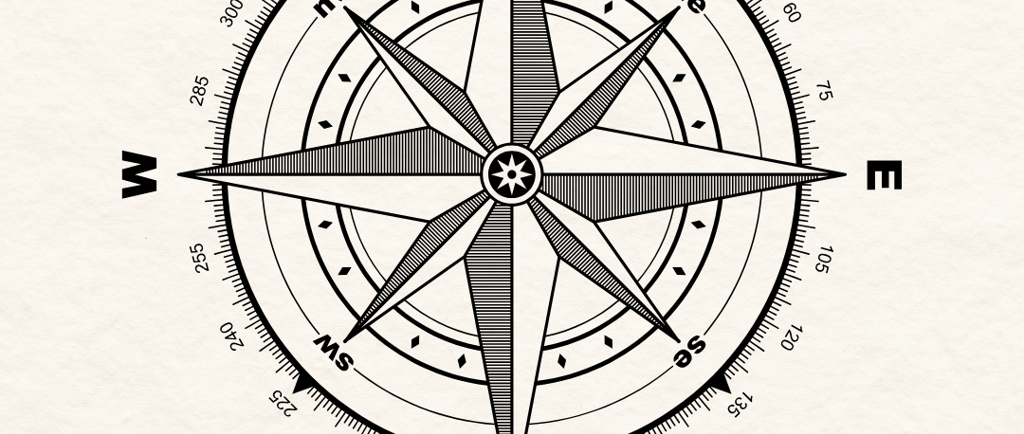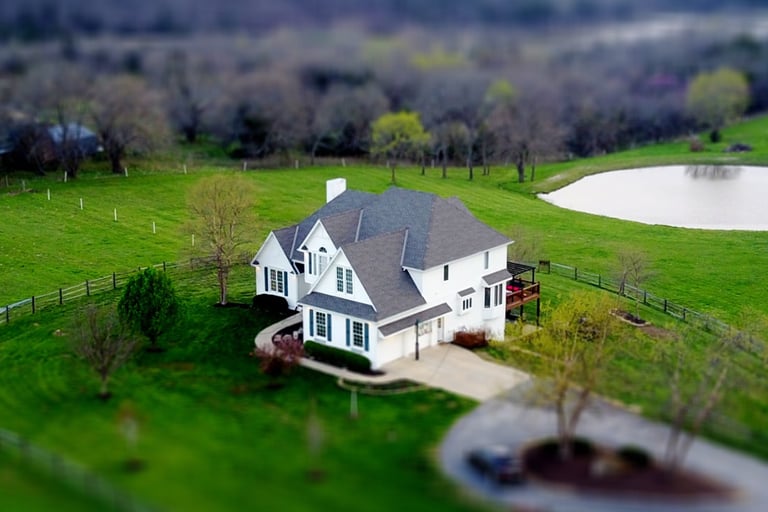Vastu shastra- importance of vastu in buying land or house
Vastu Shastra is a conventional Indian architectural framework that translates to "science of architecture." Originating from the Sanskrit terms ‘Vastu’ (dwelling) and ‘Shastra’ (science), it merges architecture with nature, cosmic energies, and elements such as air, water, fire, earth, and space.
flixahdevelopers
7/10/20256 min read


The Significance of Vastu Shastra in Purchasing a New Home
Introduction
Acquiring a new home represents a major milestone in an individual's life. It is not merely a financial commitment but also an emotional one. In India, numerous homebuyers extend their considerations beyond location, amenities, and budget; they also take into account Vastu Shastra, an ancient Indian architectural discipline that aligns living environments with natural elements. The prevailing belief is that a home adhering to Vastu principles fosters prosperity, health, happiness, and tranquility.
But what precisely is Vastu Shastra? Why is it deemed essential in the realm of real estate, particularly when purchasing a new home or land? Let us delve into these inquiries thoroughly and comprehend how Vastu can impact your home buying choices.
What Is Vastu Shastra?
Vastu Shastra is a conventional Indian architectural framework that translates to "science of architecture." Originating from the Sanskrit terms ‘Vastu’ (dwelling) and ‘Shastra’ (science), it merges architecture with nature, cosmic energies, and elements such as air, water, fire, earth, and space.
Vastu Shastra delineates the principles of design, layout, measurements, ground preparation, space arrangement, and spatial geometry to establish a balance among the five elements and guarantee a positive energy flow within a structure.
It is rooted in Vedic traditions, and although it is thousands of years old, its significance has only intensified over time, particularly among Indian homebuyers who are in pursuit of well-being and spiritual harmony.
Why Is Vastu Shastra Significant When Purchasing a New Home or Land?
In the realm of real estate, particularly concerning residential properties, adherence to Vastu principles is frequently regarded as an emblem of good fortune. It is commonly believed that implementing Vastu guidelines during the construction or selection of a home can foster a more fulfilling life by dispelling negative energies and inviting prosperity.
Let us examine the primary reasons why Vastu holds such importance when acquiring a new residence:
1. Promotes Health and Well-being
Vastu harmonizes your home with natural elements such as sunlight, wind, and magnetic fields. For instance, a well-ventilated home facing east guarantees an abundance of morning sunlight, which is vital for both physical and mental well-being. Likewise, the arrangement of rooms can significantly affect sleep quality, digestion, and overall tranquility.
2. Attracts Prosperity and Wealth
It is believed that a home compliant with Vastu fosters an environment conducive to financial growth, career success, and wealth accumulation. The strategic positioning of the main entrance, kitchen, and storage areas can greatly influence financial prosperity.
3. Strengthens Family Relationships
According to Vastu, the correct placement of rooms, particularly bedrooms and communal spaces, enhances familial harmony. For example, situating the master bedroom in the southwest sector is thought to promote stability in relationships.
4. Enhances Peace and Spirituality
Residences that adhere to Vastu principles are often perceived as tranquil and spiritually enriching. The appropriate location of the puja room (prayer room) in the northeast is believed to attract divine blessings and alleviate mental stress.
5. Prevents Negative Energy
Vastu assists in avoiding the placement of essential elements in unfavorable directions, which is thought to hinder the influx of negative energy. For example, situating the toilet in the northeast corner is discouraged as it may result in health complications or a loss of tranquility.
Vastu Guidelines for Purchasing a New Home
When purchasing a new home, the following Vastu principles are commonly adhered to by buyers:
1. Plot Orientation
Plots that face East or North are regarded as very favorable.
It is advisable to avoid plots facing South-West, as they are thought to bring challenges and instability.
2. Configuration of the Plot or House
In Vastu, square or rectangular plots are the most desirable.
Plots that are irregular or triangular may lead to energy imbalances.
3. Main Entrance
The main entrance should preferably face East or North-East to facilitate the flow of positive energy.
Homes with the main entrance located in the South-West or directly facing a T-junction should be avoided.
4. Room Placement
Room Ideal Orientation
Master Bedroom South-West
Living Room North-East or North-West
Kitchen South-East (Fire Element)
Bathroom/Toilet North-West or South
Puja Room North-East (Ishanya zone)
5. Staircase Orientation
The staircase should ascend in a clockwise direction, ideally beginning in the south or west.
6. Water Features
Water tanks, wells, or borewells should be situated in the North-East corner.
It is best to avoid placing water features in the South-West area.
Common Vastu Defects to Avoid
If you are considering a ready-to-move-in property, be sure to check for common Vastu defects that may require correction:
Toilet located in the North-East corner – deemed highly inauspicious.
Kitchen oriented towards the North – could result in financial difficulties.
Cut corners – missing North-East or South-West corners can lead to imbalances.
Staircase positioned in the North-East – may hinder financial progress.
Main door aligned with the back door – can cause energy loss.
While these defects do not always necessitate reconstruction, they can often be remedied using Vastu solutions, such as mirrors, crystals, or rearranging furniture.
Vastu for Apartments vs Independent Houses
In the contemporary urban lifestyle, a significant number of individuals reside in apartments. Although altering structural orientations in a flat is not feasible, Vastu compliance can still be attained by evaluating the layout, entrance, and arrangement of rooms.
Here are several aspects to consider:
The main entrance should ideally face East or North-East.
Balconies positioned in the East or North are preferred.
Avoid selecting apartments that have toilets located in the North-East.
Ensure there is open space available on the North and East sides.
Independent houses provide greater flexibility for Vastu, as you can design every element—from the entrance to the foundation—according to the principles.
Is Vastu Scientifically Proven?
There exists a discussion among architects and scientists regarding the scientific legitimacy of Vastu. While some perceive it as mere superstition, others contend that Vastu is founded on rational principles of design, environmental factors, and energy flow.
Instances of scientific rationale in Vastu encompass:
Homes facing East permit early morning sunlight.
Rooms in the South-West remain warmer and are suitable for bedrooms.
North-facing homes benefit from consistent light throughout the year.
In summary, even if one does not entirely subscribe to Vastu from a spiritual perspective, its guidelines frequently correspond with principles of effective ventilation, sunlight exposure, space optimization, and thermal comfort.
Vastu and Real Estate Market Trends
In the Indian real estate sector, Vastu compliance serves as a significant selling point. Developers frequently design projects incorporating Vastu principles to entice buyers. Notable trends include:
Vastu-friendly layouts featured in brochures
East/North-facing entrances marketed as premium options
Inclusion of Puja rooms in floor plans
Promoting projects as "100% Vastu compliant"
For resale properties, a home that is well-aligned with Vastu may also achieve a higher resale value and attract a larger pool of buyers.
Should You Always Follow Vastu?
While Vastu holds importance for many individuals, it is crucial to approach it with a sense of balance and practicality. Not every residence will be entirely Vastu compliant, particularly in metropolitan areas. The essential point is to:
Concentrate on essential guidelines, including the direction of entrances and the arrangement of rooms.
Implement Vastu remedies for minor imperfections.
Take into account your comfort and intuition alongside traditional beliefs.
FAQs Regarding Vastu in Home Purchasing
Q1: Is adherence to Vastu obligatory when purchasing a home?
No, it is not obligatory; however, numerous Indian homebuyers adhere to it for peace of mind and cultural significance. It remains a personal decision.
Q2: What should I do if my ideal home does not comply with Vastu?
If the property has minor Vastu doshas, you may seek advice from a Vastu expert for remedies. Do not dismiss a house solely due to minor concerns.
Q3: Can Vastu flaws be rectified without reconstruction?
Indeed. Many Vastu issues can be resolved with straightforward remedies such as mirrors, pyramids, crystals, or colors.
Q4: Is Vastu distinct from Feng Shui?
Yes. Although both seek to harmonize energy, Vastu is based on Indian traditions and elements, while Feng Shui is derived from Chinese philosophy.
Conclusion
Vastu Shastra continues to shape real estate choices throughout India. Whether you are a believer or a skeptic, it is undeniable that the principles of Vastu frequently align with sound architectural reasoning—enhancing light, air circulation, and spatial harmony.
If you are considering the purchase of a new home or land, comprehending Vastu can provide an additional layer of insight to your decision-making process. Whether for peace of mind, spiritual alignment, or investment value, Vastu Shastra remains a significant cultural and practical factor in Indian home purchasing.
for more info on real estate investment please visit our site flixahdeveloperspvtltd.com or yopu can also call us @ +91 9100600730 you can also reach us on social media @ facebook, instagram, linkedin and youtube












